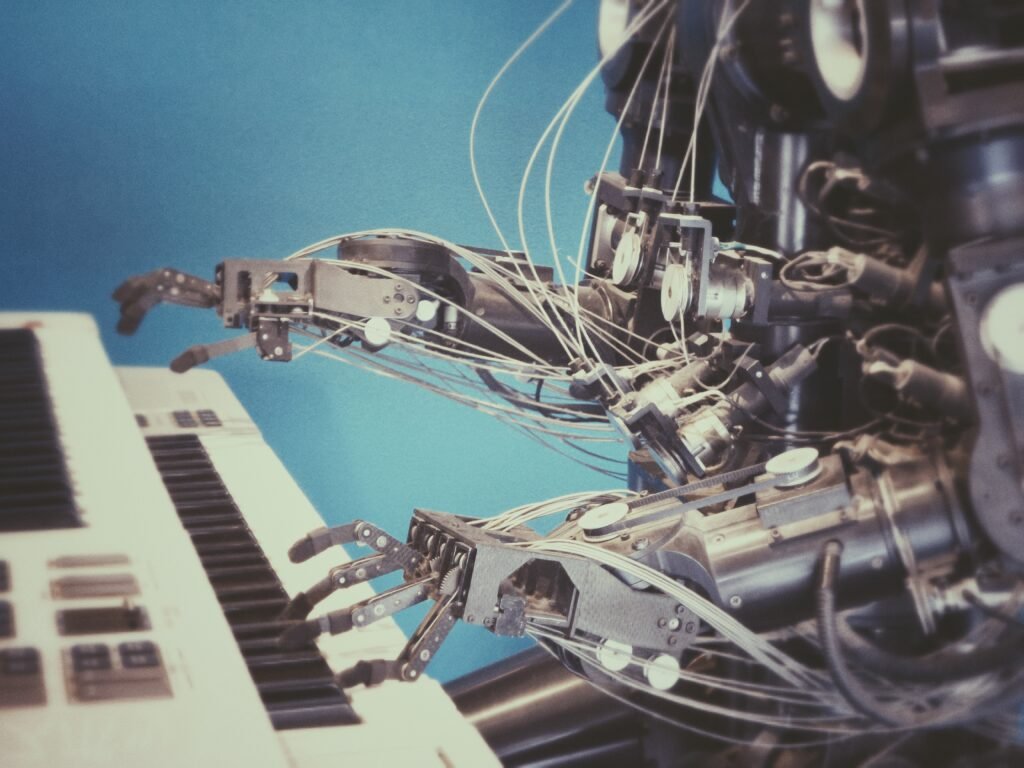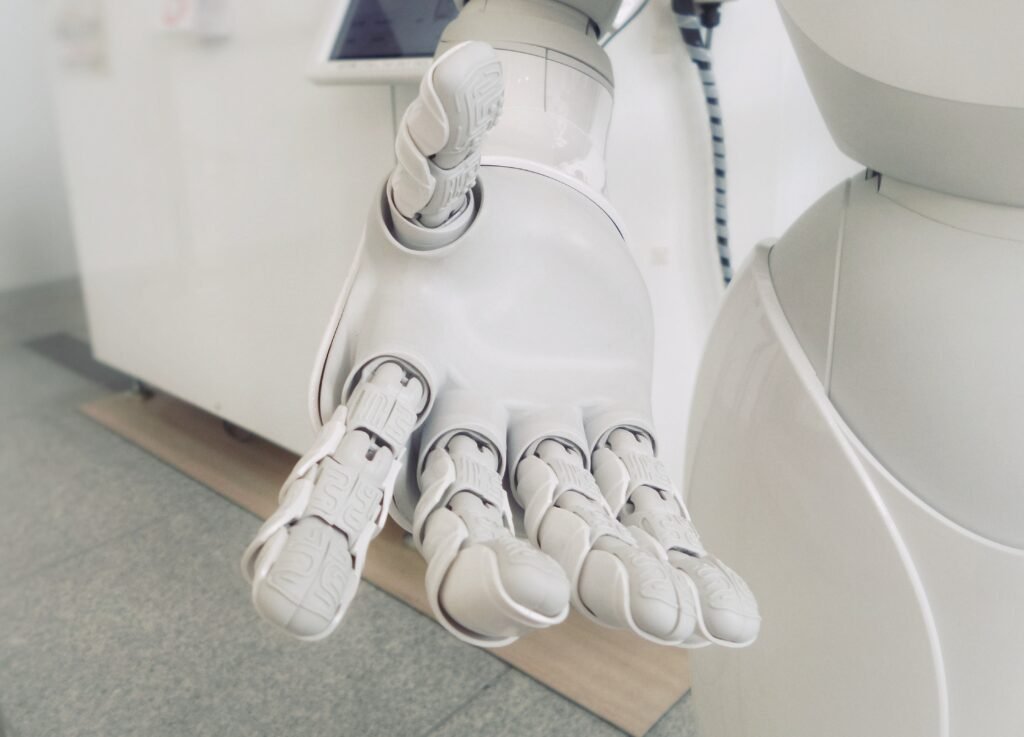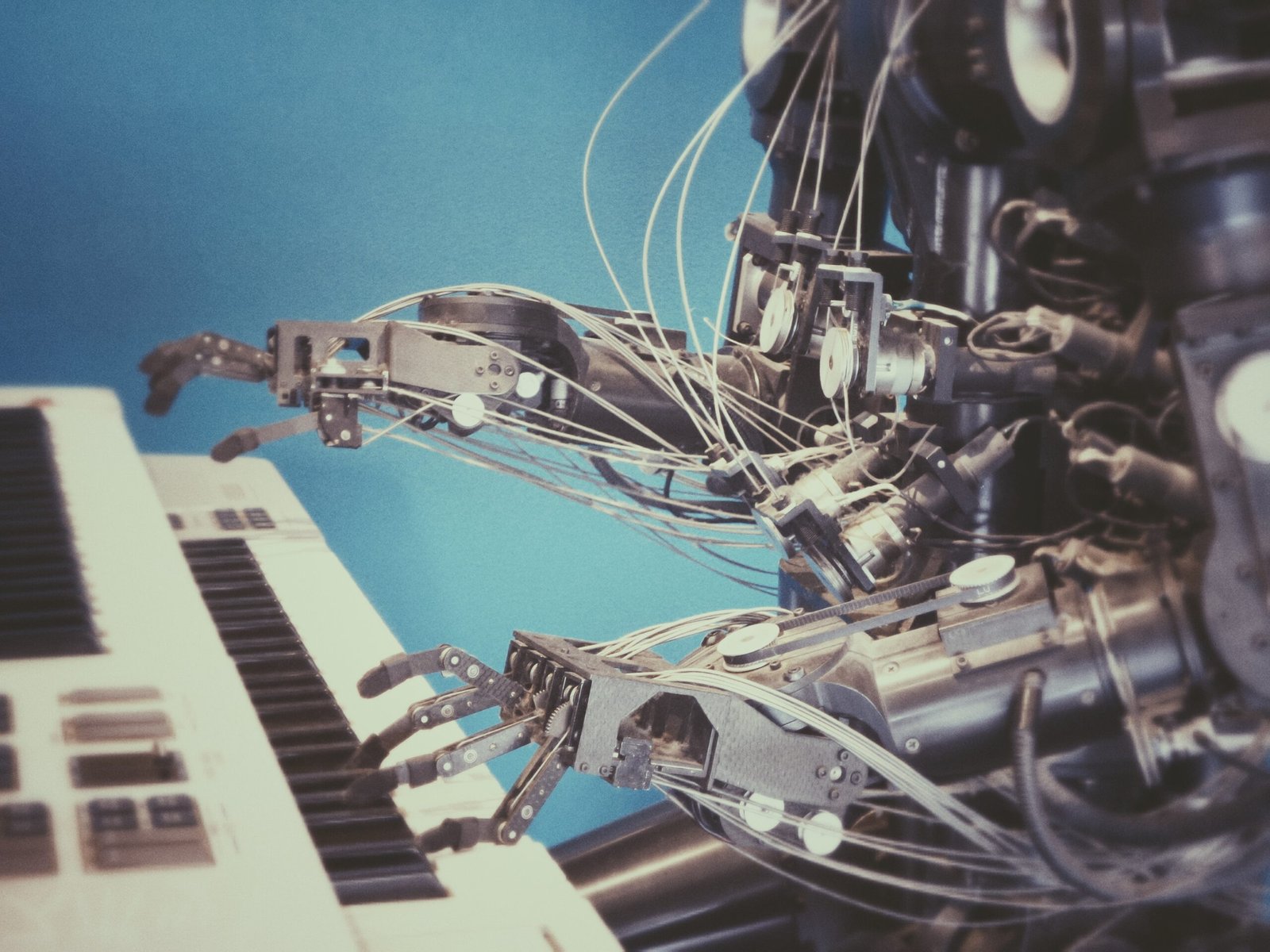Artificial intelligence, also known as AI, has become an integral part of our modern lives. From voice-activated virtual assistants to autonomous vehicles, AI technology permeates various industries, reshaping the way we live, work, and interact. Its significance lies in its ability to mimic human intelligence, performing tasks that typically require human cognition. In today’s fast-paced world, AI plays a crucial role in improving efficiency, enhancing productivity, and solving complex problems. This article explores the importance of artificial intelligence and its transformative impact across industries.
Understanding Artificial Intelligence
Artificial Intelligence (AI) is a rapidly advancing field that involves the development of intelligent machines capable of performing tasks that typically require human intelligence. These tasks include speech recognition, decision-making, learning, and problem-solving. AI is a diverse and multidisciplinary field that encompasses various subfields, including machine learning, natural language processing, computer vision, and robotics. By simulating human intelligence, AI has the potential to revolutionize industries and improve the quality of life for individuals worldwide.
Definition of Artificial Intelligence
Artificial Intelligence is a branch of computer science that focuses on creating intelligent machines capable of imitating human behavior and performing tasks that typically require human intelligence. AI systems are designed to analyze vast amounts of data, learn from experience, understand natural language, recognize patterns, and make decisions in real-time. These systems can be categorized into two main types: narrow AI and general AI. Narrow AI is designed to perform specific tasks, such as language translation or image recognition, while general AI aims to possess the same level of intelligence as humans across multiple domains.
Types of Artificial Intelligence Systems
Artificial Intelligence systems can be classified into various categories based on their level of complexity and functionality. The three main types of AI systems are as follows:
-
Reactive Machines: These AI systems have no memory or ability to learn from past experiences. They operate solely on the present input and provide output based on that input. Examples of reactive machines include Deep Blue, the AI system that defeated world chess champion Garry Kasparov, and virtual assistants that answer simple commands.
-
Limited Memory: These AI systems can store and retrieve data from past experiences. Limited memory systems are utilized in self-driving cars to store data about previous trips, enabling them to make more informed decisions in real-time.
-
Self-aware Systems: These AI systems possess human-like consciousness and awareness. They have the ability to understand emotions, think creatively, and possess a sense of self-awareness. While self-aware AI systems do not currently exist, they are a topic of ongoing research and development.
Benefits of Artificial Intelligence
Artificial Intelligence offers numerous benefits across various industries and sectors. These benefits include:
Automation and Efficiency
One of the key advantages of AI is its ability to automate tedious and repetitive tasks, freeing up human resources to focus on more complex and strategic activities. With AI-powered automation, companies can streamline their operations, reduce human error, and improve efficiency. For example, in manufacturing, AI-powered robots can perform tasks that are dangerous or physically demanding for humans, leading to increased productivity and reduced workplace accidents.
Improved Decision-Making
By analyzing large amounts of data and extracting valuable insights, AI systems can help organizations make better-informed decisions. AI algorithms can identify patterns, predict outcomes, and recommend optimal courses of action. For instance, in the healthcare industry, AI can assist doctors in diagnosing diseases more accurately and selecting the most effective treatment plans, leading to improved patient outcomes.
Enhanced Accuracy
AI systems can perform tasks with a high degree of accuracy and precision. Unlike humans, AI algorithms do not get fatigued, make errors due to emotional or mental states, or experience bias. In fields where precision is crucial, such as finance, AI can assist in detecting fraudulent activities and minimizing errors in financial transactions.
Cost Reduction
Implementing AI systems can lead to significant cost savings for businesses. By automating tasks, reducing operational inefficiencies, and optimizing resource allocation, companies can achieve cost reduction in areas such as labor, energy consumption, and waste management. Additionally, AI-powered predictive maintenance can help identify equipment or machinery issues before they escalate, minimizing downtime and costly repairs.
Increased Productivity
AI technologies, such as chatbots and virtual assistants, enable organizations to provide round-the-clock customer support and handle a large volume of inquiries simultaneously. This improves customer satisfaction and increases productivity by reducing response times and human resources required for customer service.

Industrial Applications of Artificial Intelligence
Artificial Intelligence finds applications across various industries and sectors. Some of the prominent areas where AI is making a significant impact include:
Manufacturing and Robotics
AI-powered robots are revolutionizing the manufacturing industry by automating assembly lines, improving efficiency, and enhancing product quality. These robots can perform tasks such as picking and placing objects, welding, and quality control with high precision and speed. AI algorithms also enable robots to adapt to changes in the environment and collaborate with humans in manufacturing processes.
Healthcare and Medicine
In the healthcare sector, AI is transforming patient care, diagnosis, and treatment. AI systems can analyze medical images, such as X-rays and MRIs, to detect diseases early and accurately. AI algorithms can also mine large volumes of medical records to identify patterns and risk factors associated with certain diseases, aiding in early diagnosis and personalized treatment plans. Moreover, AI-powered virtual assistants can provide patient support, monitoring, and reminders, improving patient engagement and outcomes.
Finance and Banking
AI is revolutionizing the finance industry by automating tasks such as fraud detection, credit scoring, and investment portfolio management. AI algorithms can analyze vast amounts of financial data, identify suspicious patterns or transactions, and enable real-time fraud prevention. Additionally, AI-powered chatbots and virtual assistants provide personalized financial advice and support to customers, enhancing their overall banking experience.
Transportation and Logistics
AI is driving innovation in the transportation and logistics industry, particularly in the development of autonomous vehicles and smart traffic management systems. Self-driving cars powered by AI algorithms can enhance road safety, optimize fuel efficiency, and reduce traffic congestion. AI-powered logistics systems can optimize routes, track inventory, and predict demand, leading to more efficient supply chain management and reduced transportation costs.
Economic Impact of Artificial Intelligence
Artificial Intelligence has significant economic implications, with both positive and negative effects. Understanding these impacts is crucial for policymakers and businesses alike. The main economic implications of AI include:
Job Creation
While concerns about job displacement due to AI are prevalent, AI also has the potential to create new job opportunities. As AI technologies advance, new roles and skillsets, such as AI trainers, data analysts, and ethical AI specialists, will emerge. Additionally, AI can augment human capabilities, freeing up individuals to focus on tasks that require creativity, critical thinking, and emotional intelligence.
Job Disruption and Transformation
AI technology has the potential to disrupt certain job roles and industries. Tasks that are repetitive and rule-based are more susceptible to automation, leading to job displacement for individuals in those roles. However, it is important to note that while specific job roles may be automated, new job roles will emerge to support the development and implementation of AI systems.
Economic Growth and Competitiveness
AI has the potential to drive economic growth by enhancing productivity, efficiency, and innovation. Companies that successfully adopt AI technologies can gain a competitive edge by offering superior products and services. Furthermore, AI can enable the development of entirely new industries and business models, creating new opportunities for entrepreneurship and economic growth.

Ethical Considerations in Artificial Intelligence
As AI continues to advance, it is imperative to address ethical considerations to ensure responsible development and deployment. Some of the key ethical considerations in AI include:
Privacy and Security
AI systems often rely on vast amounts of personal data to perform tasks effectively. Ensuring data privacy and security is essential to protect individuals’ sensitive information from unauthorized access and misuse. Organizations must implement robust security measures, handle data responsibly, and obtain informed consent from individuals when collecting and using their data.
Bias and Fairness
AI algorithms can inadvertently perpetuate biases present in the data they are trained on, leading to unfair outcomes and discrimination. It is crucial to develop AI systems that are fair, unbiased, and transparent. This involves careful selection and preprocessing of training data, constant monitoring and auditing of AI models, and diverse and inclusive teams developing AI systems to prevent biased algorithms.
Transparency and Accountability
AI systems often operate as black boxes, making it challenging to understand their decision-making process. It is essential to ensure transparency and accountability in AI systems to build trust and mitigate risks. Organizations should strive to develop explainable AI, where the reasoning behind AI-generated decisions can be understood and audited.
Social and Ethical Implications
AI technology has the potential to reshape societal dynamics and raise ethical questions. For instance, the impact of AI on employment and income inequality can lead to social disruptions. Additionally, the development of autonomous weapons raises ethical concerns around accountability and human control over AI systems. It is vital to closely assess and address the social and ethical implications of AI technology to create a responsible and inclusive AI-powered future.
Challenges in Implementing Artificial Intelligence
Although the potential benefits of AI are vast, several challenges must be addressed for successful implementation. Some of the key challenges in implementing AI systems include:
Data Quality and Availability
AI algorithms rely on high-quality and diverse data to perform effectively. Obtaining clean, structured, and representative data can be a significant challenge. Data collection, preprocessing, and management pose challenges, particularly when dealing with unstructured and biased data. Moreover, ensuring data privacy and complying with data protection regulations introduce additional complexities.
Lack of Skilled Workforce
The demand for skilled AI professionals far exceeds the current supply. Developing AI systems requires expertise in various domains, including machine learning, data science, and domain knowledge. Addressing the shortage of skilled professionals and providing necessary training and education programs are crucial for successful implementation and utilization of AI technologies.
High Implementation Costs
Implementing AI systems can be costly, particularly for small and medium-sized enterprises. Costs associated with data collection and management, infrastructure, hardware, and software development can be barriers to entry. Moreover, ongoing maintenance, updates, and training requirements contribute to the overall cost of AI implementation.
Overcoming Resistance to Change
Implementing AI technologies often requires changes in existing workflows, job roles, and organizational processes. Resistance to change from employees and stakeholders can hinder the successful adoption of AI. Effective change management strategies, employee training programs, and clear communication about AI’s benefits are essential to overcome resistance and ensure successful implementation.

Artificial Intelligence and Automation
AI and automation are closely intertwined, with AI powering automation and transforming industries. Understanding the impact of AI on jobs, human capabilities, and creating new opportunities is crucial.
Impact on Jobs
AI has the potential to automate repetitive and rule-based tasks, leading to concerns about job displacement. However, AI is also expected to create new job opportunities, particularly in fields related to AI development, maintenance, and support. The transition to AI-driven automation requires upskilling and reskilling the workforce to adapt to new job roles and tasks that require creativity, critical thinking, and interpersonal skills.
Augmenting Human Capabilities
AI can augment human capabilities by assisting in complex decision-making, analyzing vast amounts of data, and providing valuable insights. Rather than replacing humans entirely, AI can work in collaboration with humans to enhance productivity, creativity, and efficiency. This partnership between humans and AI is known as “augmented intelligence,” where AI systems complement and amplify human capabilities.
Creating New Job Opportunities
As AI technology continues to advance, it is expected to create new job opportunities in various sectors. The development and implementation of AI technologies require professionals skilled in AI development, data science, machine learning, and ethical considerations. Moreover, AI opens up possibilities for new business models and entrepreneurship, leading to job creation in innovative and emerging industries.
Artificial Intelligence in Everyday Life
AI has become an integral part of our everyday lives, impacting various aspects of society. Some examples of AI in everyday life include:
Virtual Assistants and Smart Home Devices
Virtual assistants, such as Siri, Alexa, and Google Assistant, are AI-powered technologies that can perform tasks based on voice commands. They can answer questions, schedule appointments, play music, control smart home devices, and provide personalized recommendations. Virtual assistants improve convenience, provide information and entertainment, and make daily tasks more efficient.
Personalized Recommendations
AI algorithms are used to provide personalized recommendations in various domains, such as e-commerce, streaming platforms, and social media. These algorithms analyze user data, preferences, and browsing history to suggest products, movies, shows, or content that is likely to be of interest to the user. Personalized recommendations enhance user experience, increase engagement, and drive customer satisfaction.
Natural Language Processing
Natural Language Processing (NLP) is a branch of AI that focuses on enabling machines to understand and process human language. NLP powers voice assistants, chatbots, and language translation services. For example, chatbots provide automated customer support by understanding and responding to user queries in natural language. NLP enables seamless communication between humans and machines, improving accessibility and convenience.
Facial Recognition
AI-powered facial recognition technology is used in various applications, such as identity verification, security systems, and social media tagging. Facial recognition algorithms analyze facial features and patterns to match and identify individuals. This technology improves security, enhances user experience, and enables personalized services.
Autonomous Vehicles
AI plays a crucial role in autonomous vehicles, enabling them to perceive the environment, analyze traffic patterns, and make real-time decisions. Self-driving cars powered by AI algorithms have the potential to revolutionize transportation by improving road safety, reducing traffic congestion, and optimizing fuel efficiency. Autonomous vehicles aim to reduce human error, provide efficient transportation solutions, and transform the way we commute.
Artificial Intelligence in Research and Development
AI has immense potential in accelerating scientific discoveries, advancing healthcare, and improving agricultural practices. Some of the applications of AI in research and development include:
Accelerating Scientific Discoveries
AI can analyze vast amounts of scientific data, such as research papers, clinical trials, and experimental results, to identify patterns, trends, and insights that may not be readily apparent to humans. AI algorithms can assist scientists in drug discovery, genetic research, and climate modeling, enabling faster and more accurate scientific discoveries.
Drug Discovery and Development
AI is revolutionizing the drug discovery and development process by accelerating the identification of potential drug targets, predicting drug efficacy, and optimizing drug design. AI algorithms can analyze molecular structures, chemical databases, and patient data to identify potential drug candidates and streamline the drug development process. This can lead to the development of more effective and personalized therapies.
Improving Agricultural Practices
AI technologies, such as machine learning and remote sensing, can optimize agricultural practices and enhance crop yield. AI algorithms can analyze agricultural data, such as soil composition, weather patterns, and plant health, to provide real-time insights and recommend optimal farming practices. This can lead to more efficient resource allocation, reduced environmental impact, and increased food production to meet the growing global demand.
Future Implications of Artificial Intelligence
The future implications of artificial intelligence are vast and hold both opportunities and challenges. Some key areas to consider include:
Advancements in AI Technology
AI is an ever-evolving field, and future advancements hold great promise. Researchers are working on developing more advanced AI algorithms, such as deep learning and reinforcement learning, to improve the capabilities and performance of AI systems. Additionally, new applications and domains of AI, such as quantum AI and AI in space exploration, are emerging, making AI an exciting area of research and development.
Impact on Society
The widespread adoption of AI will have a profound impact on society. It will reshape industries, job roles, and the economy as a whole. Addressing the potential social, economic, and ethical challenges will be crucial to ensure that AI benefits society as a whole. Collaboration between policymakers, businesses, and society at large will play a vital role in shaping the future of AI in a way that is inclusive, equitable, and sustainable.
Global Collaboration and Regulation
As AI technology advances, global collaboration and regulation are crucial to address ethical concerns, ensure responsible AI development, and prevent misuse of AI systems. International collaboration can facilitate knowledge sharing, best practices, and standards in AI development and deployment. Governments and organizations need to work together to establish ethical guidelines, privacy regulations, and accountability frameworks to create an AI-powered future that benefits humanity.
In conclusion, artificial intelligence has the potential to revolutionize industries, enhance decision-making, and improve efficiency. Understanding the different types of AI systems, its benefits, industrial applications, and ethical considerations is essential for harnessing the full potential of AI. While challenges such as data quality, skilled workforce, and implementation costs exist, AI’s impact on job creation, augmenting human capabilities, and creating new opportunities cannot be underestimated. As AI continues to progress, its presence in everyday life, research and development, and future implications will shape our society and the way we live and work. By embracing AI technology responsibly and collaboratively, we can leverage its power to create a more inclusive, innovative, and prosperous future.






